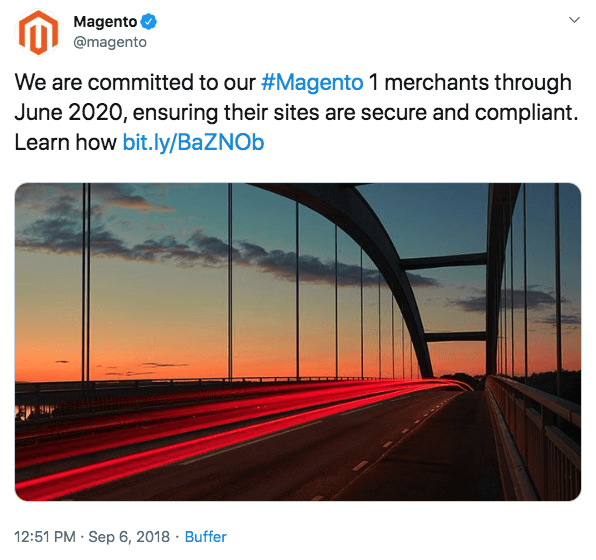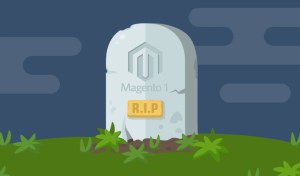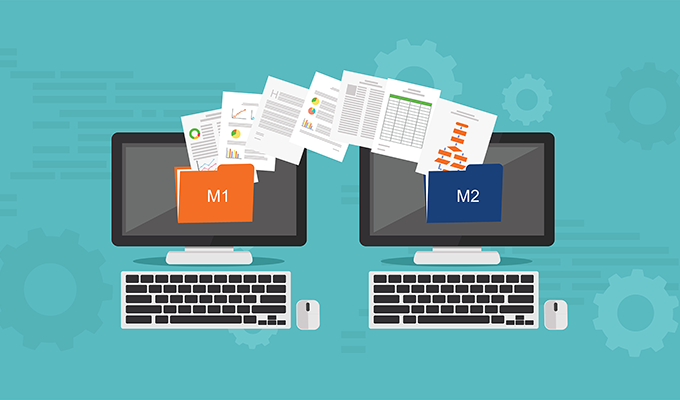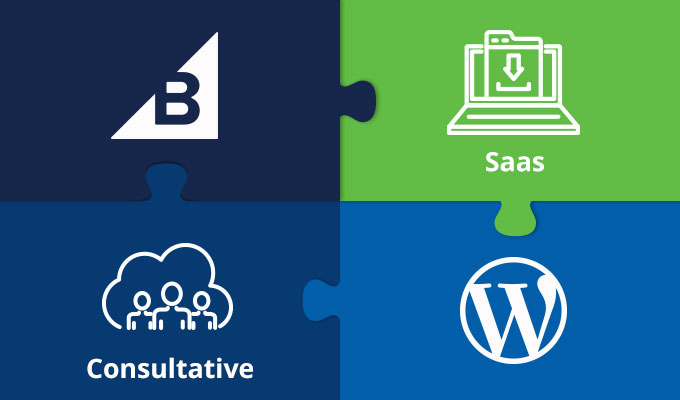Magento 1: End Of The Line

If you’re a Magento merchant, you’ve been hit with a barrage of marketing material from agencies, annoying admin alerts, and one-pagers from platform vendors all saying the same thing:
“Magento 1 is going away! When are you going to spend some money with us?”
Here’s the Weidenhammer advice – straight and unfiltered.
Be Thoughtful
Moving from Magento 1 to Magento 2 is not a small IT project to be scheduled when everyone has some spare time. It is effectively a re-platform or a migration. None of your Magento code will transition, although your data may be migrated.
Do you want your old data? Many merchants see the shift in platforms as an opportunity to clean up product attributes, customer information, and other “legacy” data to improve reporting or reflect operational changes that never got fully implemented in their technology.
This is a golden opportunity to take stock of where you are as a business and think through your e-commerce requirements as if you were starting from scratch. Do you need all of those $29 extensions your predecessor bought one night on the Magento Marketplace? What about all of those A/B testing and personalization services you signed for free trials with? That weird order export that dumps a PDF every night into your inbox, and you’re not sure why? You might need to keep all of those, but probably not.
You might have some future plans that have been on hold because you didn’t want to invest in a Magento 1 platform that’s going away but the business is being held back. Want to move into an emerging market? Localize content in another language? Launch a branded ordering portal for your distributors or resellers? Really nail embedding video content into your catalog pages? Now’s a good opportunity to start thinking about how much revenue you’re missing out on.
Yes, the countdown timer is ticking but that doesn’t mean you need to immediately run out and sign an agreement. Pick the right platform, agency, and deliverables.
Be Realistic
It’s not a secret that Magento 2 is more complex and, dare we say it, expensive to develop on relative to Magento 1. Magento development is more specialized now, because the architecture is more enterprise-ready than Magento 1 was. Also, developer pay has increased and the cost to enter the market as a Magento agency is higher than it was when Magento was first launched in 2007 & 2008. We believe this is on balance good, because it means the market is maturing and merchants can and should expect more predictability and reliability from their Magento store and from their supporting agencies.

However, it also means that your budgetary planning needs to take this into account. If you bought your old Magento 1 site for $10,000 and a box of Twinkies, that’s wonderful but don’t expect the same results twice. You can probably buy a Shopify site for that though (although you should not re-use the same box of Twinkies as they actually do expire).
Talk to multiple agencies about a quote for your Magento 2 re-platform, and examine carefully what each is delivering and not delivering for that quote.
Be Aware
So what happens when Magento 1 goes End of Life? Well, nothing. SUPEE patches will be stop being issued from Magento. You will see increasingly frantic admin pop-ups alerting you that your version is not being supported. PHP 7.2 will EOL at the end of November and Magento will not be providing an M1 patch for 7.3+.
Magento partner Inchoo released a PHP 7.0 patch for Magento 1 before Magento released their official version. Will they do it for 7.3? Follow them on Twitter and find out.
Adobe the company will no longer be backing the Magento codebase. Magento’s greatest strength is its community and that will always be true, but nobody is guaranteeing the timeliness or coverage of security patches, even with community support. Another Magecart epidemic could be very bad for unsupported Magento 1 merchants.
There are 2 organizations, OpenMage, and Mage1 who have stated they will continue to support Magento 1 in some capacity post EOL. This is great news, and it definitely buys many M1 merchants more time to migrate, but in our opinion it’s not a long term solution for anyone planning to continue improving their e-commerce platform.
The truth is that most Magento agencies and extension providers started retooling for Magento 2 years ago, and many of us aren’t taking new M1 business. If you have a developer and a hosting provider you’re happy with, and they are committing to keeping your site patched and supported, that can be a viable option. But new extensions, new features, and a growing ecosystem of developers will not be supporting you. Your support network will be shrinking – new developers will not be going into Magento 1 development.
Be Strategic
Technology is always changing, and expectations change with it. Change for the sake of change is never wise, which is why we advise being thoughtful, realistic, aware, and strategic about how you plan for the future. Talk to other merchants, attend conferences and meetups, and make technology an asset you leverage instead of an expensive utility you consume. Magento has many years ahead of it as an Adobe product, and the flexibility, openness, and breadth of the ecosystem are unparalleled in the e-commerce platform space. And when you’re ready to thoughtfully and deliberately take the step into the latest version of Magento, give us a shout.


